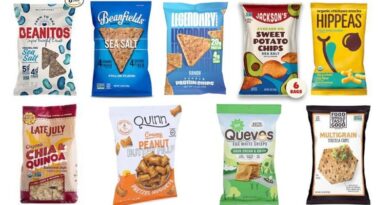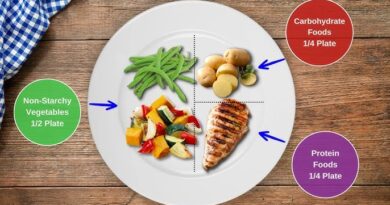Probiotics and Diabetes: Can They Help?

The buzz around probiotics is growing, and for good reason! Researchers are uncovering more about the human microbiome—the unique array of bacteria and microorganisms that inhabit our bodies—and its influence on health. Probiotics are a key component of the gut microbiome and are commonly used to treat digestive issues.
Recent studies are exploring the broader effects of the microbiome on areas like heart and mental health, but what about diabetes? This article will delve into what probiotics are, their food sources, their potential benefits for diabetes, and ways to support a healthy gut microbiome.
Understanding Probiotics
Probiotics are beneficial bacteria and yeasts that naturally reside in the human body. They serve various functions, such as aiding digestion, combating infections and inflammation, and even producing vitamins. An imbalance in probiotics can disrupt the body’s harmony.
Common probiotics in foods and supplements include Lactobacillus and Bifidobacterium, with numerous species within these types that fulfill different roles in the body.
Sources of Probiotic Foods
Probiotics are abundant in many fermented foods. Incorporating these into your diet can boost your gut microbiome:
- Yogurt with “live active cultures”
- Kombucha (fermented tea)
- Sauerkraut (fermented cabbage)
- Kimchi (Korean fermented vegetables)
- Miso (Japanese fermented soybeans)
- Buttermilk
- Kefir (fermented milk)
- Certain cheeses (e.g., brie, gruyere, Swiss, provolone, Gouda, feta, cottage cheese, cheddar)
- Tempeh (fermented soybeans)
Prebiotics: Fuel for Probiotics
Prebiotics, which are fibers and complex carbohydrates, are the preferred nourishment for probiotics. Since probiotics are living organisms, they require food too! Consuming high-fiber foods like fruits, vegetables, and whole grains regularly helps maintain a healthy gut microbiome. Some prebiotic-rich foods include:
- Garlic
- Bananas
- Whole grains (e.g., corn, oats, wheat bran, farro, barley)
- Onions
- Asparagus
- Cocoa powder
- Chicory root
- Flaxseeds
- Seaweed
Health Benefits of Probiotics
Probiotics have been shown to positively impact certain digestive issues, though research is still emerging on their benefits for other conditions, including diabetes. Here’s what researchers have found so far:
Probiotics and Diabetes
Some studies indicate that certain probiotics from foods and supplements can help individuals with type 2 diabetes (T2D) lower fasting blood glucose and HbA1c levels, especially in those not on insulin therapy.
Research on gestational diabetes has shown similar outcomes with probiotic supplementation, including reduced insulin resistance. However, fewer studies have examined the effects of probiotics on glucose levels in type 1 diabetes (T1D). An imbalanced microbiome may contribute to T1D onset for some individuals, and research is ongoing into the benefits of probiotic supplementation soon after T1D diagnosis. A small study published in 2022 revealed that children who took probiotic supplements for three months reduced their fasting glucose by approximately 23mg/dL and HbA1c by 0.8%.
While research on probiotics in adults with T1D is limited, probiotics may still offer benefits for certain diabetes-related complications, such as heart disease, gum disease, and gastroparesis.
Probiotics and Heart Health
Individuals with diabetes face a higher risk of heart disease. Some research suggests that probiotics can positively impact heart health by lowering total and LDL (“bad”) cholesterol levels. The National Institutes of Health reports that specific probiotics found in foods and supplements may contribute to these improvements:

Probiotics and Periodontal Disease
Periodontal (gum) disease is more common among people with diabetes. Early studies suggest that probiotics may help manage gum disease by balancing “bad” bacteria in the mouth and reducing inflammation.
Probiotics and Gastroparesis
Gastroparesis, a diabetes complication that slows digestion and causes symptoms like bloating and indigestion, is more prevalent in individuals with T1D. Although research on probiotics for gastroparesis is limited, the International Foundation for Functional Gastrointestinal Disorders indicates that probiotics may help manage its symptoms.

Supporting a Healthy Microbiome
The impact of the microbiome on overall health is an exciting and rapidly evolving field. While there’s still much to learn, especially regarding the microbiome and diabetes, a healthy diet can support a robust microbiome.
Here are some ways to do that:
- Include a variety of fiber-rich foods (prebiotics) such as fruits, vegetables, whole grains, nuts, seeds, and beans in your diet.
- Consume fermented foods like low-sugar yogurt whenever possible.
Sample Menu with Probiotics + Prebiotics
- Breakfast: Yogurt, banana, ground flaxseed
- Lunch: Sourdough bread sandwich with Swiss cheese, tomatoes, and onions; Kombucha
- Dinner: Grilled chicken, barley, and asparagus cooked with garlic
- Snack: Whole grain pita with hummus and carrots
Supplements
Probiotic and prebiotic supplements are available in various forms (e.g., capsules, powders), but they are not government-regulated and can be expensive. Additionally, the potency of probiotics in supplements can diminish over time.
Healthline offers a detailed guide on different types of probiotic supplements and their specific uses. Always consult your healthcare provider before starting any nutrition supplement.
Conclusion
While there’s still much to learn about probiotics and T1D, maintaining a healthy microbiome can improve your overall health. Probiotics contribute to a healthy microbiome and can be found in many fermented foods. Additionally, probiotics may help manage certain diabetes-related conditions. For most people, consuming probiotics and prebiotics through food is safe, and a diet rich in fruits, vegetables, and whole grains can enhance your microbiome.



